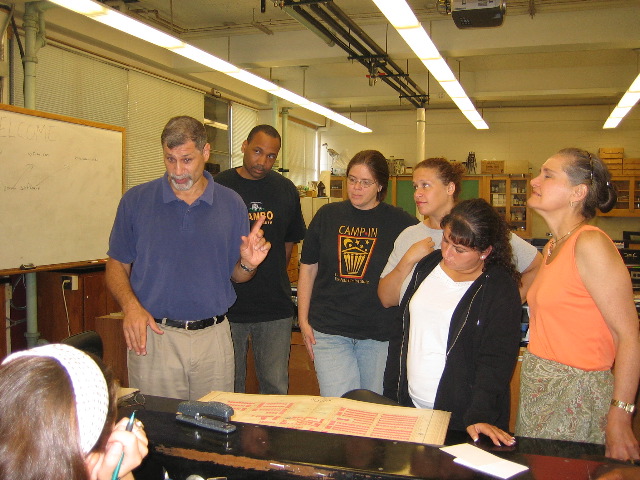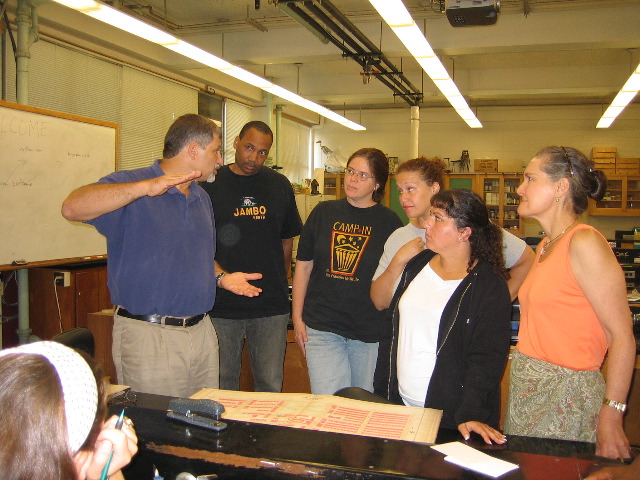(July 24-August 4, 2006)
Reflecting on Day 4:
Jeff ("I will teach you to steal") Cohen,
his "toy box" of
Resources,
and our newly re-named
Photo Morgue
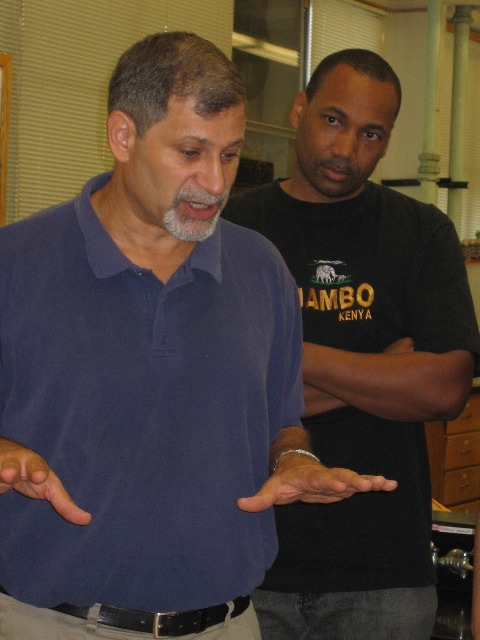 |
As seen from the perspective of
Growth and Structure of Cities,
"This is not quite science.
What emerges is unpredictable.
People are willful." |
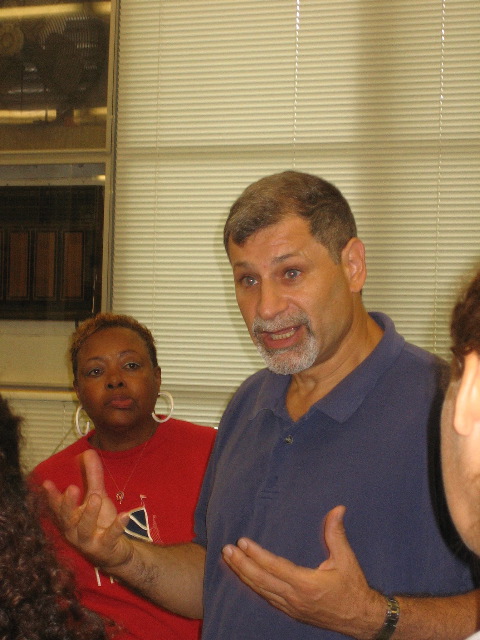 |
Cf. Paul Grobstein,
the Harvard Law of Animal Behavior:
"under carefully controlled experimental circumstances,
an animal will behave as it damned well pleases."
Cf.
Liz McCormack: "being educated is being
on the boundary of knowledge; it means walking out
knowing that not everything is known."
SO: WHAT IS SCIENCE?
More exactly: after a week of
conversation-and-experimentation,
what does science-with-a-sense-of-place
look/sound/smell/taste/feel like?
- Looping back-and-forth between Jeff's "realia" and
Liz's "cosmic"/J.D.'s "virtual" ("With the Internet,
place is not as big an issue; we can 'take place
out of the equation.'")
- Jeff: "This can get ugly. These things have legs."
(this means: meticulous searching-and-re-searching)
- Dalia: "You have to go through hundred's
of useless sites to find something useful."
- Jeff: "I am interested in the 'normative' part,
the 'vernacular landscape.'"
- "There's boiler plate. And then there's the working engine."
(this means: there's the norm. But keep an eye out for
the deviations, the exceptions, the outliers...)
- Regina: "The net is expanding. The universe is expanding.
Inner and outer space keep moving."
(this means: the boundary of what we know keeps...
eluding what we know).
- Jeff: It's "something knowable," in tension with
what we do not (can not?) know:
"There's very little testimony on why people did what they did."
- J.D.: "This is a fundamental question in [computer] science:
how can you know when you are done? Theoretically, never.
It's called a 'semi-decidable' problem."
- Deirdre: "The Internet [and doing science?] is like asking questions of an old guy, who has all the information, but can't access it until someone asks him the right question...."
- J.D.: "Programming uses nouns and verbs" (=science distinguishes between objects and actions?). "And each has properties..."
- Jeff: "We're seeing serious palimpsests here, uncovering the layers of history."
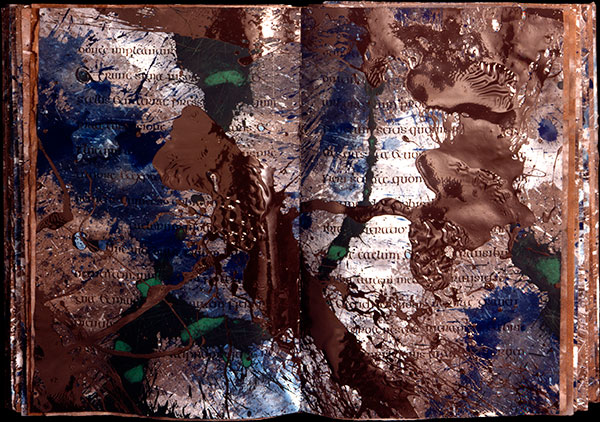
Denis Brown, "Palimpsest" (Mixed media on paper folios, 1993)
This afternoon, Wil and I want to extend
that palimpsest in two directions:
inwardly (to the history of who we came from/
how we came to be who we are), and
outwardly (to understanding ecosystems).

"Palmipsest"
The gesture towards helping our students understand
"where they are placed developmentally" (thanks, Regina!),
is today only minimal. See/hear, for instance,
What is place? (where we locate ourselves...)
What is space? (what we might move into...?)

Tom Linfield, "Palimpsest" (Drawing, 2002)
Where we're settling
this afternoon, guided by Wil Franklin:
Understanding Ecosystems: Structure and Function
[an error occurred while processing this directive] 

